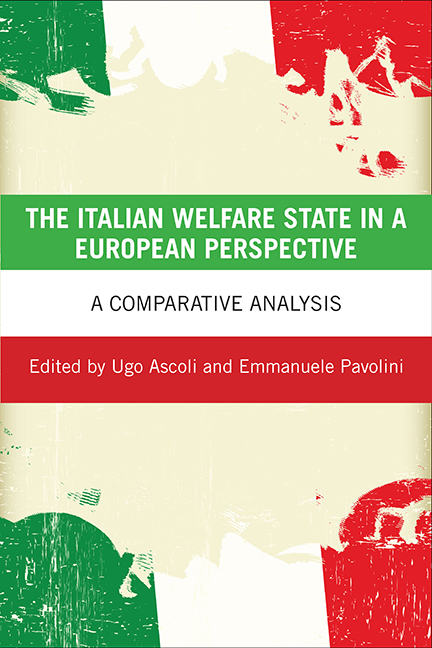eight - Higher education, between conservatism and permanent reform
Published online by Cambridge University Press: 08 March 2022
Summary
Introduction: higher education as a part of the welfare state
This chapter describes and discusses the main features of the Italian higher education system (HES) as a part of the welfare state. It is not a standard point of view, as policy research on the welfare state typically focuses on other policies (health care, pension systems, employment policies, etc).
Such an exclusion cannot be justified anymore. It is well-known that national states invested a huge amount of resources to expand participation in higher education for reasons going beyond its direct economic returns (Schofer and Meyer, 2005). Higher education can be framed within the ‘Social Investment approach’ (Morel et al, 2012) as a key policy fostering an accumulation of human capital, with potential relevant returns for workers’ employability: higher education does, indeed, produce skilled workers, and, in this way, it increases labour productivity and, as a consequence, the well-being of the population. However, this is just a part of the story. First, as observed by the historical sociology of education (Collins, 2000), the increasing participation in higher education becomes a factor of development in itself. Indeed, it involves the direct creation of skilled jobs (professors, technicians, administrative officers), and it also incentivises the emergence of a number of satellite activities, from publishing to copying, from hospitality for students to the cultural and entertainment industry flourishing in every university town. Most of this job creation is anti-cyclical, resulting in what Collins (2000: 237) calls ‘a hidden Keynesian mechanism of reinvestment’. Second, the expansion of higher education is socially useful not just because of the skills it produces and the jobs it creates, but also because it keeps young people out of unemployment, reducing the risk of social conflict associated with high youth unemployment (Barbagli, 1982; Walters, 1984). Third, research on the non-economic returns of education shows participation in higher education to be associated with many desirable individual-level outcomes, such as civic participation, tolerance, good health, stable family behaviour, responsible consumption patterns and so on (Oreopoulos and Salvanes, 2011; Hout, 2012). Fourth, higher education, as every type of schooling, acts as a social ‘sorting machine’ (Spring, 1976; Stevens et al, 2008), allocating people to occupations on the basis of the quantity and quality of their skills.
- Type
- Chapter
- Information
- The Italian Welfare State in a European PerspectiveA Comparative Analysis, pp. 207 - 234Publisher: Bristol University PressPrint publication year: 2015



